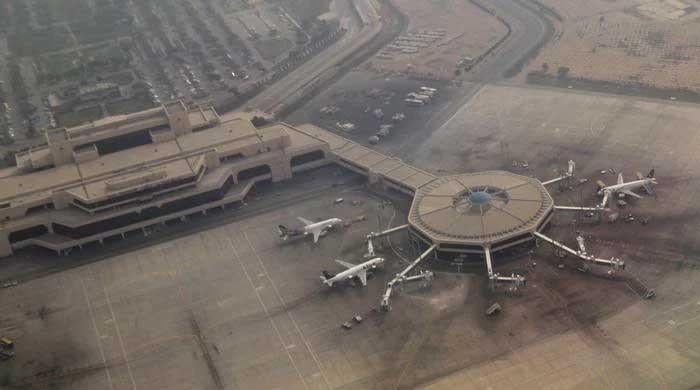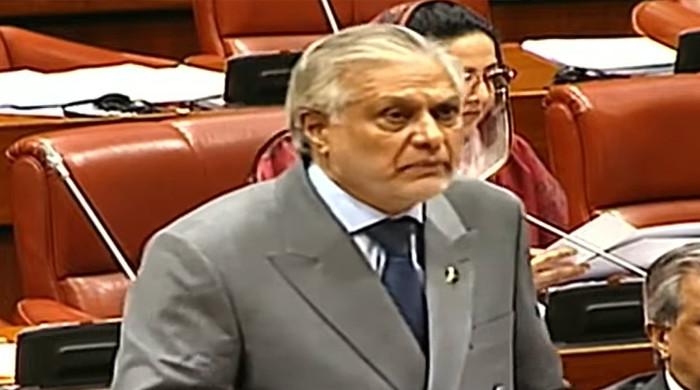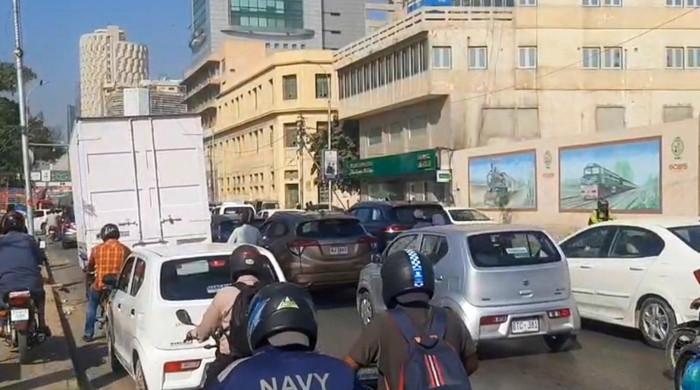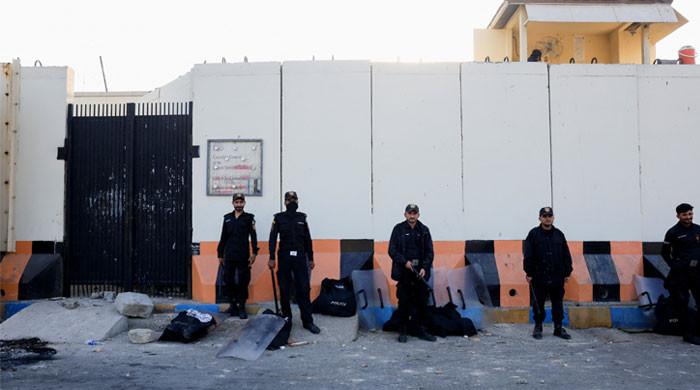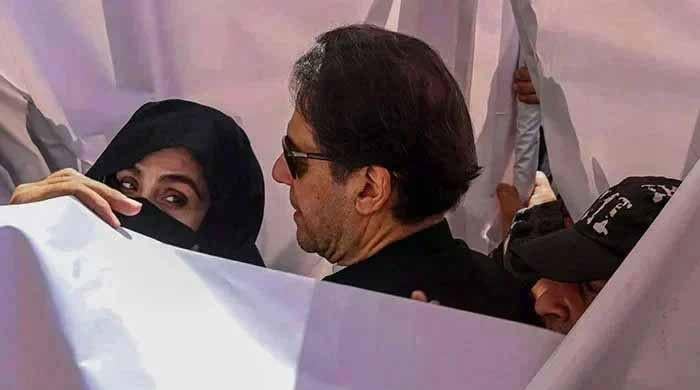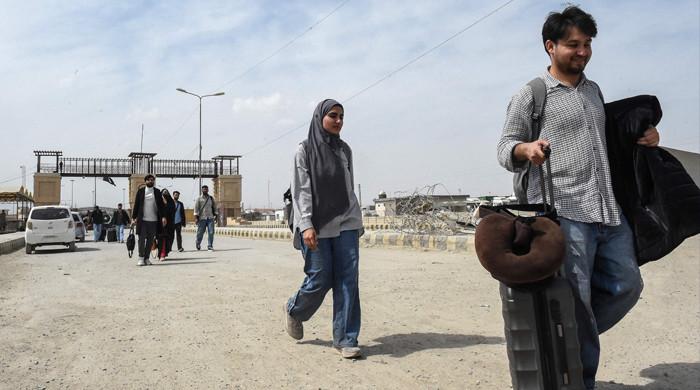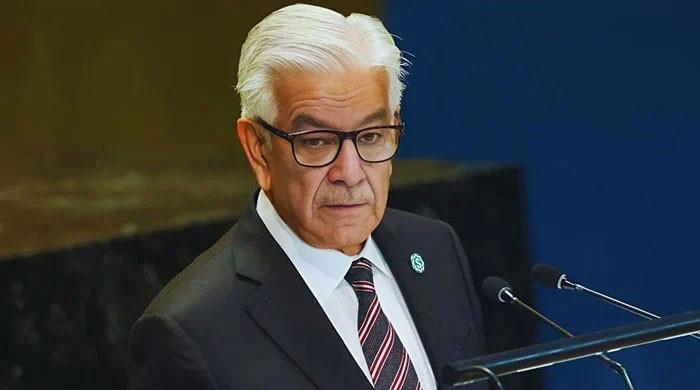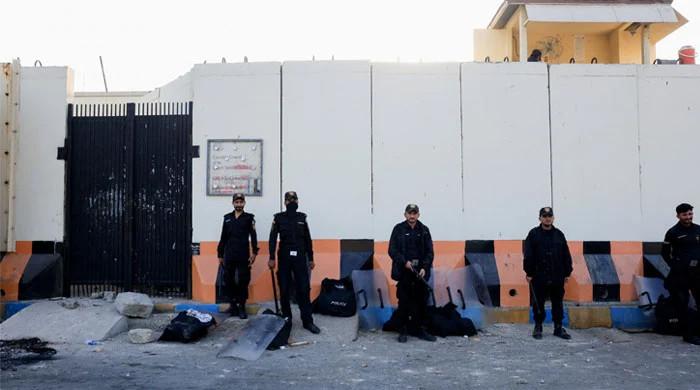Global calls intensify to hold Modi accountable for human rights abuses
Petition was launched on the same day Pakistan urged the UNSC to take notice of IIOJK's dire situation
May 16, 2025
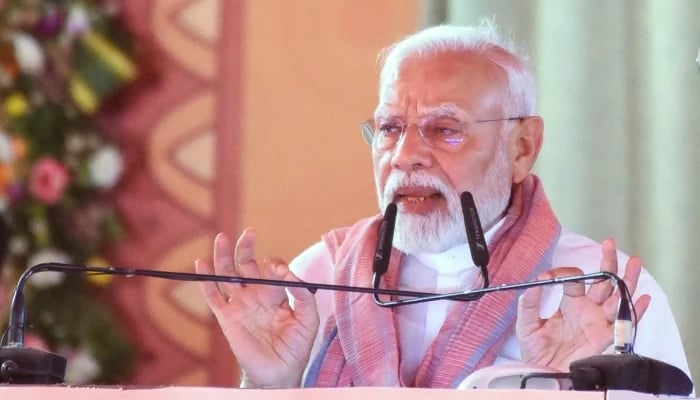
A petition has been launched in the United States to bring Indian Prime Minister Narendra Modi and two of his close associates to justice for their "involvement in human rights abuses in India".
"We, concerned global citizens, urgently call for accountability and international action against Indian Prime Minister Narendra Modi, Home Minister Amit Shah, and National Security Advisor Ajit Doval for their active role in enabling and escalating grave human rights violations across India," reads the document.
The petition was moved by American-Pakistanis, and it has listed “state-sponsored violence against peaceful demonstrators, systematic targeting of religious and ethnic minorities, censorship and criminalisation of dissenting voices, misuse of authoritarian laws like UAPA and sedition to crush democratic freedoms, and neglect of public safety” as some of the main human rights abuses by the Modi government.
The petitioners have urged the United Nations Human Rights Council (UNHRC), global human rights organisations, and democratic governments around the world to launch independent investigations into rights abuses committed under the current Indian regime, and to apply diplomatic and economic pressure to end state repression and restore democratic norms in India.
The timing of this petition is critical, as it was launched on the same day Pakistan urged the United Nations Security Council (UNSC) to take notice of the dire situation in Indian Illegally Occupied Jammu and Kashmir (IIOJK).
In a policy statement during the Security Council briefing on the implementation of Resolution 2474, Ambassador Asim Iftikhar Ahmad, Permanent Representative of Pakistan to the UN, highlighted the plight of missing Kashmiris at the hands of Indian occupation forces.
Asim Iftikhar, representing Pakistan, said that India had used the pretext of the recent terrorist incident to round up more than 2,000 people to further suppress Kashmiris’ struggle for their legitimate right to self-determination.
“Missing persons are not just numbers. They are fathers who never returned home, mothers separated from their children, young boys who disappeared in the dead of night, and daughters whose fates are sealed in silence. Their absence is a wound that never heals, leaving families trapped in an endless cycle of hope and despair,” he said, describing the despair of the affected Kashmiris.
Asim Iftikhar further said, "From the investigations held so far, it has been revealed that these victims are first disappeared by Indian occupation forces and then tortured to death or summarily executed."
He reminded members that the Office of the High Commissioner for Human Rights (OHCHR), in its two reports of 2018 and 2019 on Kashmir, had recommended to “ensure independent, impartial and credible investigations into all unmarked graves” in IIOJK.
The permanent representative demanded that every missing person be accounted for, family connections be restored, and the fundamental rights of those lost in the chaos of conflict be upheld.
He stressed that the issue of missing persons is a symptom of unresolved conflicts, which need to be addressed.
International organisations have also questioned the human rights record of the Modi government.
According to Human Rights Watch, "Indian authorities continued to restrict free expression, peaceful assembly, and other rights in Jammu and Kashmir. Reports of extrajudicial killing by security forces continued throughout the year."
Human Rights Watch (HRW) maintained that the Modi regime has persisted with its policies of discriminating against and stigmatising religious and other minorities, which has led to increasing incidents of communal violence in many parts of India.
"Allegations of torture and extrajudicial killings persisted, with the National Human Rights Commission registering 126 deaths in police custody, 1,673 deaths in judicial custody, and 55 alleged extrajudicial killings in the first nine months of 2023," said the HRW in a statement.
And, in a recent report, Amnesty International pointed out: "National financial and investigation agencies were weaponised against civil society, human rights defenders, activists, journalists and critics, further shrinking civic space.
Authorities continued to unlawfully demolish properties belonging to religious minorities as a means of meting out extrajudicial punishment."
Experts say it is strange that despite all these accusations by HRW and AI, hardly any action is taken against the repressive Indian regime.




